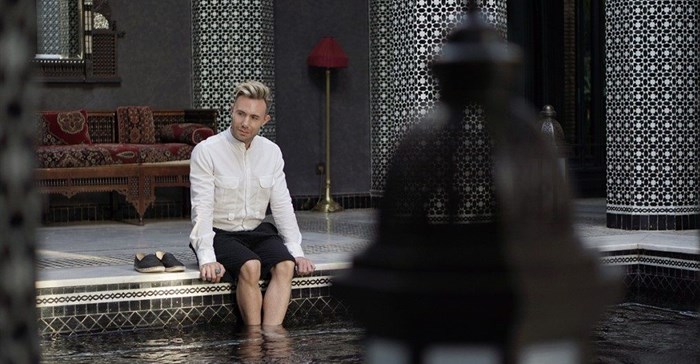
Anthony Berklich, founder of Inspired Citizen, in Morocco
This disposition translates directly into how they travel and how they approach the travel market. When it comes to spending, millennials are now the new thought-leaders and influencers, according to Berklich. As the travel industry is moving online, and millennials are thoroughly ensconced in online and social media networks, how this group defines travel - luxury travel in particular - is becoming increasingly important.
So, how do millennials consume luxury differently from their parents?
“Parents of millennials perceive luxury in a somewhat old-school way. Butlers in tuxedos, stuffy hotel furnishings, being greeted by sir and madam,” says Berklich. This is a far cry from how millennials define luxury. They put unique and exclusive experiences above luxurious comfort and are willing to sacrifice the latter for the former.
They don’t care if they find the latest designer soap in the shower, but if they find a hand-made soap made with local ingredients from a small soap business with a story, they will be far more impressed – authenticity is key. “The narrative, the story behind it is what they are buying into,” says Berklich. This is not to say that they do not enjoy their creature comforts, but crave a deeper connection in how they interact with their surroundings. Thus, the way they perceive luxury has changed and the industry will have to follow suit if they want to attract millennial travellers.
Living it up
According to Berklich, millennials “seek unique and special, exclusive experiences and items that make them different and create a separation between them and the masses and, most importantly, allow them to express themselves. They are a little narcissistic and will spend money to feel special.” While they are optimistic about the future, they do believe in living for today. Therefore, they are willing to spend more on material items they feel are special to them, or dig deep for an experience of a lifetime.
They are spontaneous travellers and they want a “social-media-worthy travel experience,” says Berklich, however, they put great store in how their travels change and enrich their lives and how they, in turn, contribute to the destinations they have travelled.
Catering for millennials
As denizens of social media, it is to social media they look to find their next travel experience. While they are influenced by blogs, magazines, and shows – Northern Ireland, Iceland and Malta enjoying a spike in tourists thanks to Game of Thrones, for example – they also mine Instagram, Facebook, Snapchat, and other social media channels for travel inspiration.
To cater for millennials, destinations and establishments need to know who the influential travel and lifestyle bloggers are, follow them and watch what they do. They must trawl social media channels to see what people are photographing and showcasing on Instagram, Snapchat, etc. and emulate them.
Destinations need to know who they are, what they can offer millennials that are special, and be willing to experiment with their offerings to recreate something regular into something unique and fun. “Create an environment and experience conducive to luxurious and memorable travel moments,” says Berklich. In other words, create a social-media-friendly environment by paying attention to even the tiniest detail.
Destinations should “host trips for millennial influencers - paying attention to not just the amount of followers they have, but how they share and what their aesthetic is,” says Berklich - making sure that it matches their own. While hosting millennial travellers and influencers alike, destinations and establishments must further make their social media presence known by supplying visitors with hashtags and social media handles, so that it’s easy for them to mention and share their experience.
How can Africa reach millennial travellers on a global scale?
Africa has not been well known as a destination for international travellers. This is starting to change, however, “through the constant consumption of media and information - millennials are expanding their knowledge of Africa and the diversity and variety here that is on offer,” says Berklich.
He encourages destinations and establishments to make their products work for them by showcasing it through eye-catching imagery and short, but memorable writing to capture the hearts of travellers. Destinations should play to their strengths and capitalise on their weaknesses. As Berklich explains: “If your destination sees rain for six months out of the year - don’t write that season off. Instead, use it to create incredible experiences that will attract and draw in the adventurous millennial.”
Destinations and establishments will need to think outside the box. Instead of getting stuck in how things have always been done, they should take a page from this adventurous generation - “switch it up and step out on a ledge.”














































